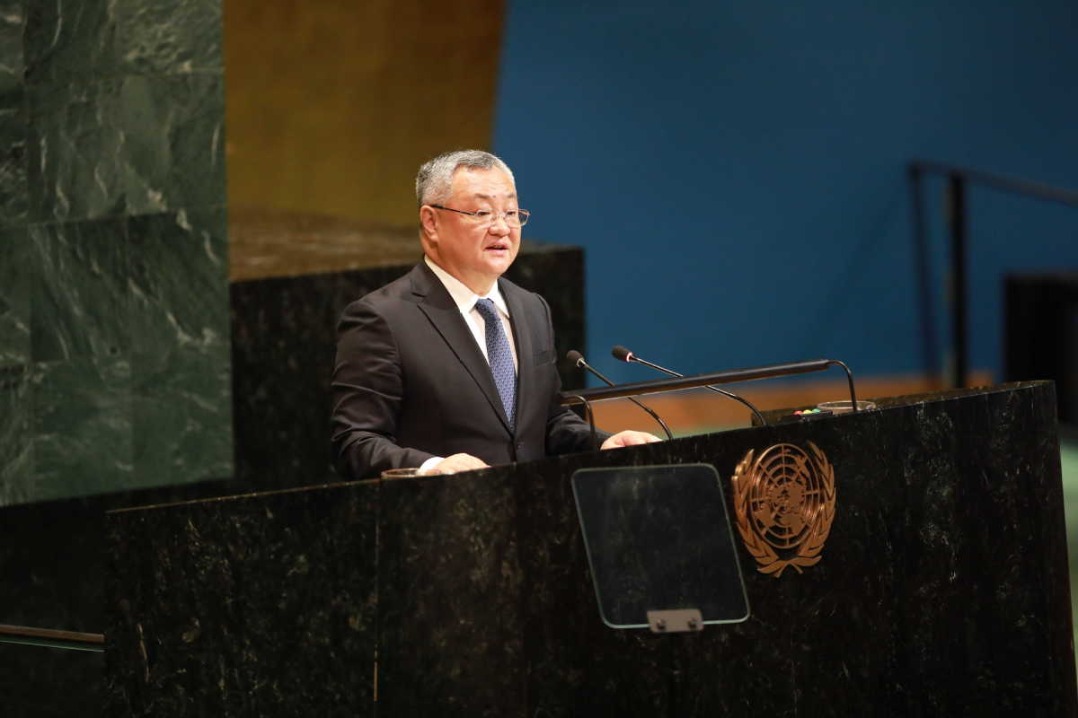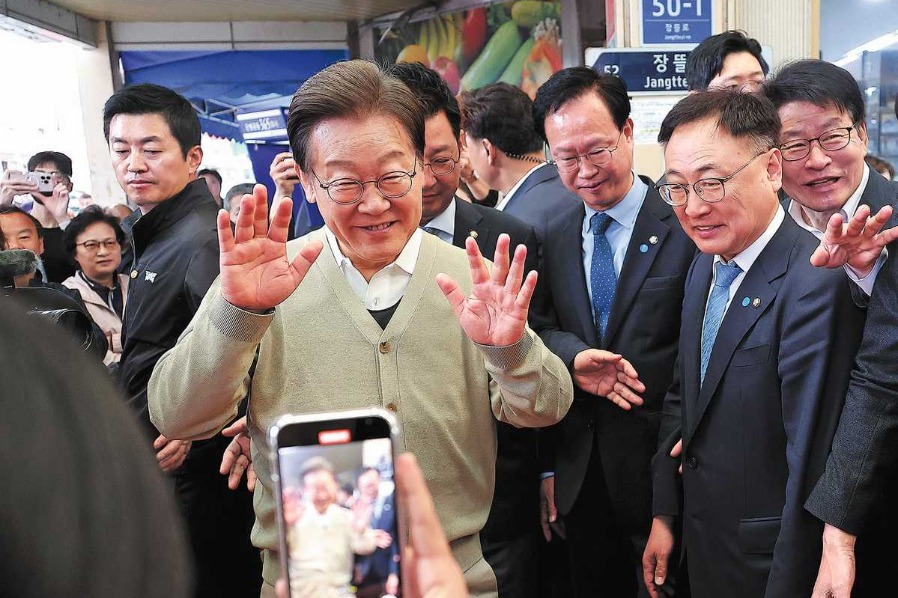China, US scheduled to hold trade talks
Talks: Washington urged to correct its wrongdoings





China and the United States are scheduled to hold official trade talks later this week, as Beijing reiterates its commitment to dialogue and cooperation while firmly safeguarding its legitimate interests in the face of escalating US-initiated trade tensions.
Analysts said that mounting pressure from domestic stakeholders in the US may have pushed Washington back to the negotiating table. They also said that the international community is watching closely to see whether the upcoming talks can help stabilize the global economy and provide a turning point to ease trade tensions and address trade disputes between the world's two largest economies through dialogue.
The Foreign Ministry confirmed on Wednesday that Vice-Premier He Lifeng, China's lead person for China-US economic and trade affairs, will have a meeting with the US' lead person, Treasury Secretary Scott Bessent, during He's visit to Switzerland from Friday to Monday. The ministry said that the talks were scheduled at the request of the US.
The conversations mark the first official public engagement between the world's two largest economies since the Trump administration's decision to impose hefty tariffs on imports from China plunged the two sides into a trade war.
In the lead-up to Beijing's decision to agree to engage with Washington, senior US officials had been signaling adjustments to tariff measures and had proactively conveyed messages through various channels, expressing their desire to engage in talks with China on tariffs and related issues, the Ministry of Commerce said on Wednesday.
"Taking into account the global expectations, China's interests, and the calls from the US business community and consumers, China has decided to agree to engage in contact with the US," said a spokesperson for the ministry.
Bessent said on Tuesday that the two sides would hold meetings on Saturday and Sunday in order to lay the groundwork for future negotiations.
"My sense is that this will be about de-escalation, not about the big trade deal, but we've got to de-escalate before we can move forward," he told Fox News. "The current tariffs and trade barriers are unsustainable, but we don't want to decouple."
Although analysts viewed the talks more as a symbolic gesture, they said it nonetheless signals that the possibility of dialogue and cooperation still exists, which could pave the way for easing trade tensions and injecting much-needed certainty into global economic growth.
Robin Xing, Morgan Stanley's chief China economist, said: "We believe that both sides are hoping to reach a comprehensive agreement. The current stage of mutual escalation and tit-for-tat measures between the two countries might temporarily subside."
However, due to the numerous issues involved and the considerable differences between the two sides in many areas, the negotiations will be very complex and will require a substantial amount of time to complete, Xing added.
Beijing made clear that it is entering the talks with caution.
"If the US wants to talk, our door is always open," the Commerce Ministry spokesperson said. "But if you say one thing and do another, or even attempt to use talks as a cover to continue coercion and extortion, China will never agree, let alone sacrifice its principled position and international fairness and justice to seek any agreement."
The spokesperson stressed that negotiations must be grounded in "mutual respect, equal consultation and mutual benefit".
Cui Fan, a professor of international trade at the University of International Business and Economics in Beijing, said, "China has emerged as the most resolute, decisive and forceful among all global economies in its countermeasures against the US' protectionist actions."
China has maintained a firm stance of not accepting any negotiations unless the US corrects its wrongdoings, according to Cui.
The unintended consequences of the US' unilateralism and its protectionist actions against China, such as deteriorating consumer sentiment and a record-high trade deficit, have put significant domestic pressure on the White House to find a resolution to the ongoing trade tensions.
US consumer confidence fell in April to an almost five-year low on growing pessimism about prospects for the economy and the labor market due to tariffs, decreasing nearly 8 points to 86, according to the Consumer Confidence Index released on April 29 by The Conference Board, a global think tank whose headquarters are in New York City.
Meanwhile, data released on Tuesday by the US Census Bureau showed that the US trade deficit ballooned 14 percent to a record $140.5 billion in March, as businesses stockpiled goods to get ahead of the sweeping tariffs that US President Donald Trump imposed in April.
Luo Zhiheng, chief economist at Yuekai Securities, said that Trump's extensive use of tariffs has severely affected the US' economic growth and damaged its international reputation, a development that Luo said will ultimately backfire on the US.
"What China needs to do now is to turn itself into the world's largest consumer market and a core hub of global imports, filling the market gaps left by the US. As a community of shared interests, China will garner more friends ... thereby enhancing its negotiating leverage against the US," Luo said.




























